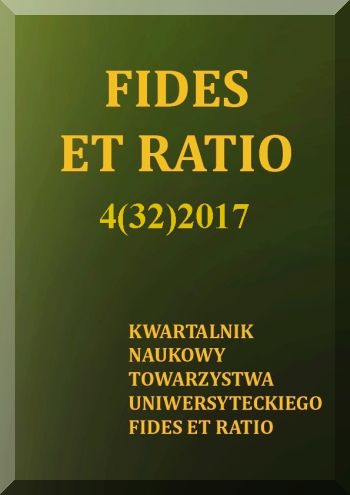Abstract
In the article we consider factors of family environment, which affects childrens' well-being and mental health. The first factor is related to the condition of the marital relationship and emotional maturity of parents. The second factor concerns parents' attributional style, which influences childs' attitude towards the world and itself. Then we consider the parents' attachment style, their ability to estabilish close relationship and the impact of fathers' commitment to upbringing and looking after a child. In the article we underscore the significance of family relationship and emotional maturity of parents for childrens' well-being and mental health.
References
Sayer, L. C., Gauthier, A. H., Furstenberg, F.F. (2004). Educational Differences in Parents’ Time With Children: Cross-National Variations. Journal of Marriage and Family 66, 1152–1169.
Selcuk, E., Gunaydin, G., Sumer, N., Harma, M., Salman, S., Hazan, C., Ozturk, A. (2010).
Self-reported romantic attachment style predicts everyday maternal caregiving behavior at home. Journal of Research in Personality, 44, 544–549.
Seligman, M.E.P., Peterson, C., Kaslow, N.J., Tanenbaum, R.L., Alloy, L.B., Abramson, L.Y.
(1984). Attributional style and depressive symptoms among children. Journal of Abnormal Psychology, 93, 235-238.
Shaver, P. R., & Mikulincer, M. (2002). Attachment-related psychodynamics. Attachment&Human Development, 4, 133–161.
Smith, A. M., & O’Leary, S. G. (1995). Attributions and arousal as predictors of maternal discipline. Cognitive Therapy and Research, 19, 459–471.
Stark, K.D., Schmidt, K.L., Joiner, T.E. (1996). Cognitive triad: relationship to depressive symptoms, parents’ cognitive triad, and perceived parental messages. Journal of Abnormal Child Psychology, 24, 615-623.
Sullivan, H.S. (1953). The interpersonal theory of psychiatry. New York: W.W. Norton.
Turk, E., Bry, B. (1992). Adolescents’ and parents’ explanatory style and parents’ causal explanations about their adolescents. Cognitive Therapy and Research, 16, 349-357.
Tyra, T.L. (2000). Depresyjni rodzice i ich dzieci. Przegląd Psychologiczny, 43, 323-337.
Vanni, A. (2012). Ojcowie obecni – dzieci szczęśliwe. Poznań: Wydawnictwo W drodze.
Zvara, B. J., Schoppe-Sullivan, S. J., Kamp, C. (2013). Fathers' Involvement in Child Health Care: Associations with Prenatal Involvement, Parents' Beliefs, and Maternal Gatekeeping. Family Relations, 62, 649–661.
Selcuk, E., Gunaydin, G., Sumer, N., Harma, M., Salman, S., Hazan, C., Ozturk, A. (2010).
Self-reported romantic attachment style predicts everyday maternal caregiving behavior at home. Journal of Research in Personality, 44, 544–549.
Seligman, M.E.P., Peterson, C., Kaslow, N.J., Tanenbaum, R.L., Alloy, L.B., Abramson, L.Y.
(1984). Attributional style and depressive symptoms among children. Journal of Abnormal Psychology, 93, 235-238.
Shaver, P. R., & Mikulincer, M. (2002). Attachment-related psychodynamics. Attachment&Human Development, 4, 133–161.
Smith, A. M., & O’Leary, S. G. (1995). Attributions and arousal as predictors of maternal discipline. Cognitive Therapy and Research, 19, 459–471.
Stark, K.D., Schmidt, K.L., Joiner, T.E. (1996). Cognitive triad: relationship to depressive symptoms, parents’ cognitive triad, and perceived parental messages. Journal of Abnormal Child Psychology, 24, 615-623.
Sullivan, H.S. (1953). The interpersonal theory of psychiatry. New York: W.W. Norton.
Turk, E., Bry, B. (1992). Adolescents’ and parents’ explanatory style and parents’ causal explanations about their adolescents. Cognitive Therapy and Research, 16, 349-357.
Tyra, T.L. (2000). Depresyjni rodzice i ich dzieci. Przegląd Psychologiczny, 43, 323-337.
Vanni, A. (2012). Ojcowie obecni – dzieci szczęśliwe. Poznań: Wydawnictwo W drodze.
Zvara, B. J., Schoppe-Sullivan, S. J., Kamp, C. (2013). Fathers' Involvement in Child Health Care: Associations with Prenatal Involvement, Parents' Beliefs, and Maternal Gatekeeping. Family Relations, 62, 649–661.
Downloads
Download data is not yet available.
